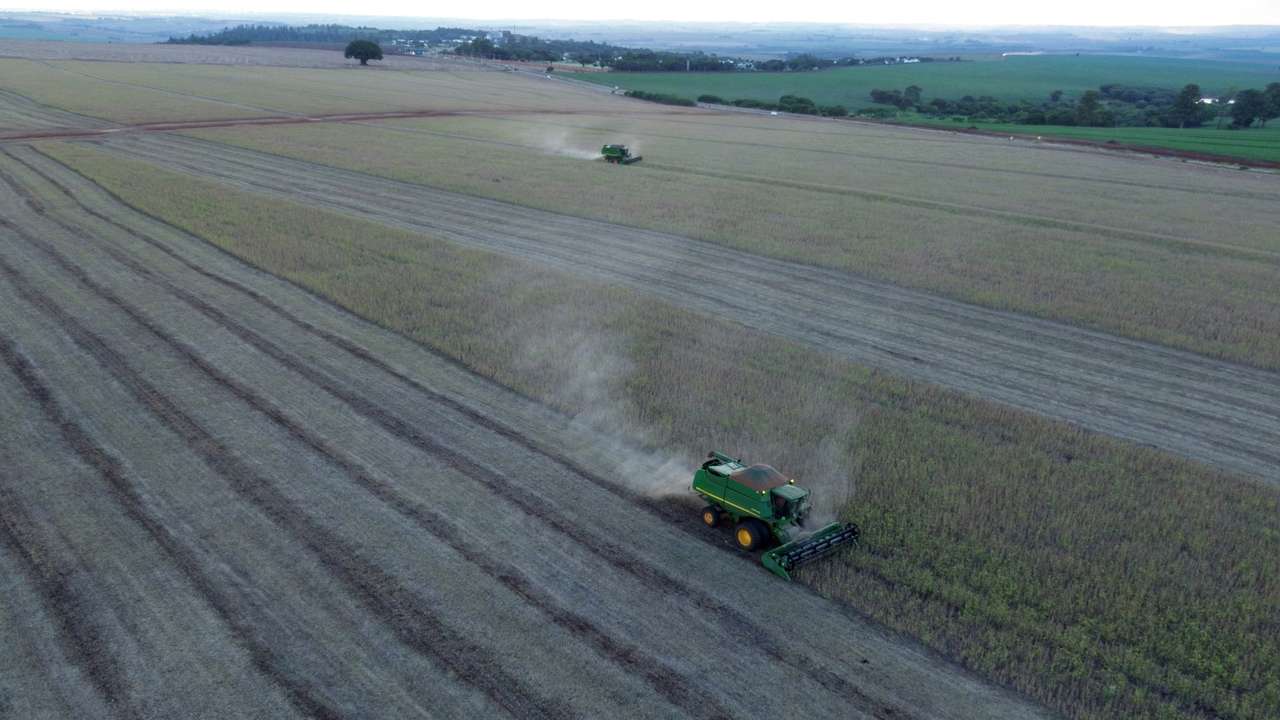By Ana Mano and Ricardo Brito
Brazil's Supreme Court will allow the country's biggest farming state to withdraw tax incentives from signatories of the so-called "Soy Moratorium," a voluntary ban by grain traders on soybean purchases from Amazon areas deforested after 2008, in a setback for the conservation movement.
Conservationists have praised the 2006 Soy Moratorium initiative for slowing damage to the world's largest rainforest. But the agreement is under growing pressure from farmers' lobbies interested in expanding plantings to meet rising demand for soy from Brazil, the leading producer globally.
Separately on Tuesday, Brazil's Mato Grosso farmers lobby Aprosoja-MT filed a fresh lawsuit against global grain companies and their Brazilian lobbies over the rules of the moratorium, according to a copy of the complaint filed with the court and seen by Reuters.
They want the court to force the defendants to cease what they called "the illegal conduct that has been practiced within the scope of the Soy Moratorium." Farmers are seeking to persuade the judge to make the defendants pay compensation for the losses this agreement allegedly imposed on Brazilian soybean farmers.
Aprosoja-MT is suing the Brazilian units of ADM, Bunge, Cargill, Louis Dreyfus Company and COFCO and lobbies for grain exporters, such as Abiove and Anec.
Louis Dreyfus Company referred Reuters to Abiove for comment. Cargill and Abiove declined to comment on the lawsuit. Anec and the other firms did not immediately reply to requests for comment.
Mato Grosso state, which supplies almost a third of Brazil's soybeans, passed a law last year pulling tax advantages for those joining the Soy Moratorium.
The Supreme Court had provisionally suspended enforcement of the law pending a ruling on its compliance with the constitution.
RULING TO BE CONFIRMED
In the decision handed down on Monday following arguments from Mato Grosso, Justice Flavio Dino acknowledged the moratorium as an important conservation tool; however, he wrote it cannot be used to constrain the actions of the state.
The state "may base its tax incentive policy on criteria that are different from those of a private agreement, as long as it is in compliance with national legislation," Dino wrote.
"It seems reasonable to me that [Mato Grosso] state should not be obliged to grant tax incentives or public land [use] to companies failing to comply with laws that took effect after the signing of the Soy Moratorium," he added.
The ruling must now be confirmed by a panel of Supreme Court justices before it can be enforced from January 1, 2026, the decision said.
Abiove, which represents soybean traders, said last week before a Senate committee that the case gave the soy industry a chance to improve the moratorium.
On the Supreme Court's decision itself, Abiove vowed to open talks with the Mato Grosso government to discuss the application of the new law if the panel confirms the latest ruling on the matter. Abiove praised the fact Justice Dino gave time in his decision for private and public agents to have talks.
Abiove added Dino's decision "makes it clear" that all previous legal acts and acquired rights "are guaranteed," meaning the incentives already granted to the trading companies cannot be withdrawn, according to the statement.
The current moratorium agreement bars soy purchases from a whole farm if it includes areas deforested since 2008, and one potential change could allow more flexibility by drawing a distinction between individual soy fields.
Farmers and traders, however, have yet to reach a compromise.
This article was produced by Reuters news agency. It has not been edited by Global South World.
